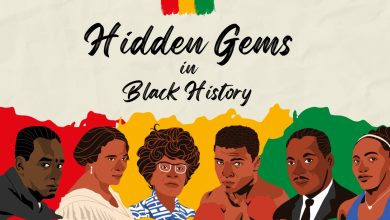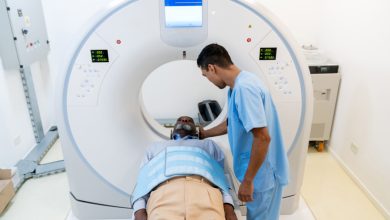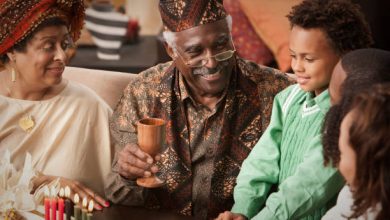Olympian Gabby Thomas’ Race for Gold & Health Equity


In the world of track and field, Gabby Thomas shines as a two-time Olympic medalist with a passion that extends far beyond the finish line.
“I grew up doing pretty much every sport under the sun, mainly soccer. I started running reluctantly because my mom kind of forced me to, but I ended up falling in love with it because it’s such a unique sport,” the 27-year-old shares. “You can really see the progress that you make: what you put in, you get out. I started setting goals for myself, achieving things, and working towards my accomplishments.”
Eventually, her hard work landed her a position on the Harvard track and field team where she grew to love the sport.
“It was when I broke the NCAA record in college and won my first NCAA championship that catapulted me into my professional career. After that, I continued to love the sport. I fell in love with the process and the journey of getting better, growing, and being the best version of myself that I could be as an athlete. Then, I made the Olympic team, and the rest is history,” Thomas shares.
While her journey from a multi-sport athlete to a record-breaking track star is captivating, it’s her dedication to promoting health equity, which started while taking a course at Harvard called “Sick and Tired of Being Sick and Tired”, that truly sets her apart.
“It was pretty mind-blowing to actually learn a lot of things that you don’t learn in high school or even in your college courses,” Thomas, who suffered a health scare in 2021 when an MRI revealed a tumor on her liver, shares. “I really had to go out of my way to seek out this information. I learned how underserved communities and marginalized populations are affected, especially in terms of their healthcare. People with socioeconomic disparities are disproportionately affected, and this includes people of color.”

Seeing how factors beyond most people’s control, like not having transportation to see doctors, not being able to afford healthy food, and not having time to exercise, affected the health outcomes of underserved communities prompted Thomas to take action.
“It was shocking to me. So, I started taking more sociology courses at Harvard to supplement this information, and then I decided to get my master’s in public health [at the University of Texas],” says Thomas, who also earned her Bachelor’s degree in neurobiology during her time at Harvard. “That’s when I really developed this fundamental understanding of what I could do to make a difference. So, I’ve dedicated a lot of my time to improving these health outcomes.”
When she’s not on the field, Thomas dedicates much of her time to volunteering at Volunteer Healthcare Clinic in Austin, Texas
“I spend a few hours of my week here. I’m currently responsible for recruiting volunteers, and I track patients’ lifestyle habits. I direct them to resources they need, including doctor’s visits and medications. I really develop a strong relationship with each individual patient, so we’ve developed this holistic approach to healthcare,” she says. “I think this is important because you understand the



